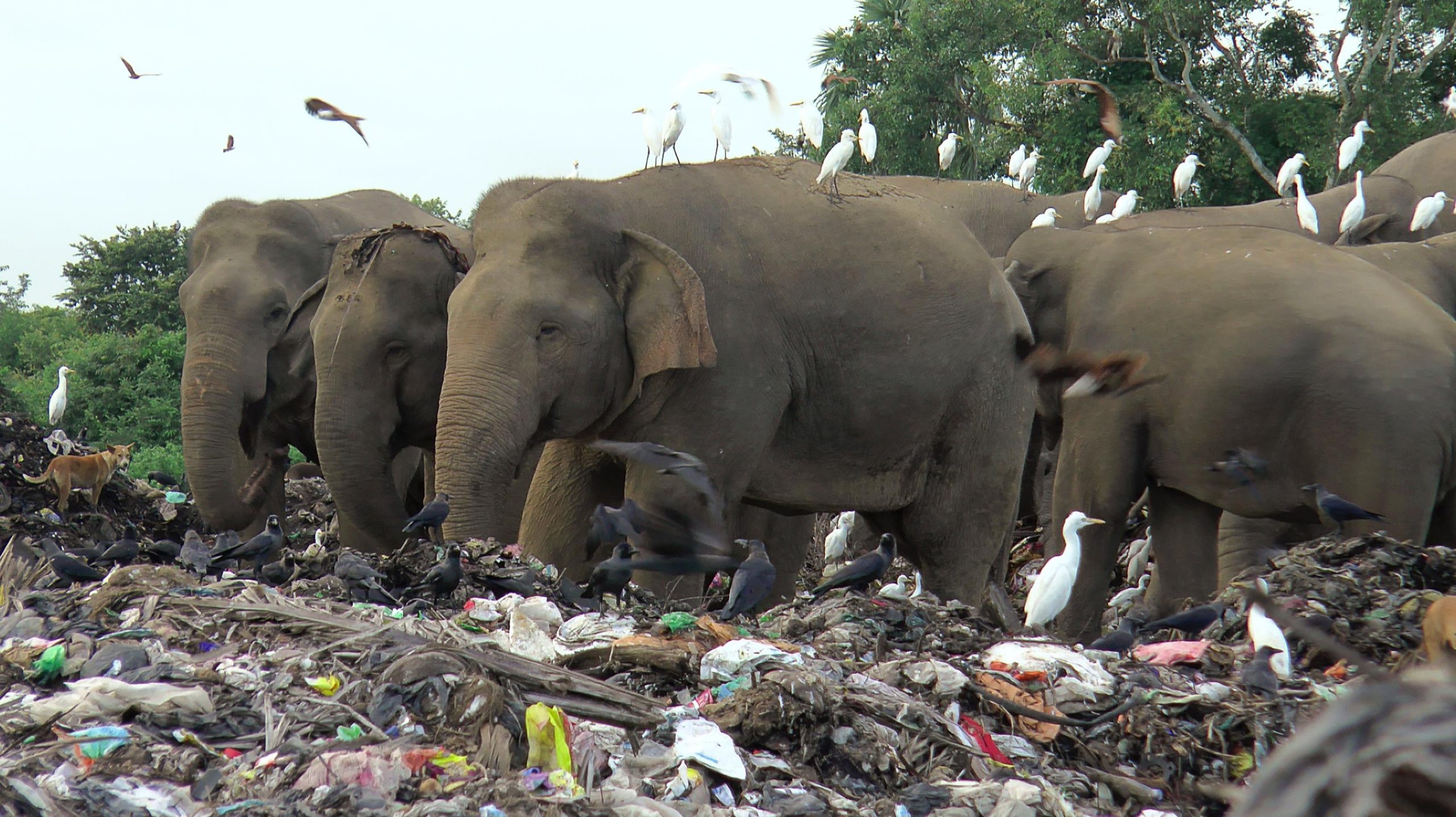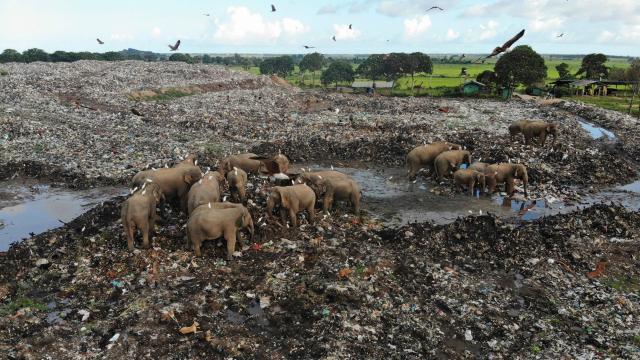Wild elephants are notoriously intelligent creatures known for exhibiting unmatched empathy in the animal world. But humanity has put elephants in some tough spots, and there may be no tougher one than a Sri Lankan landfill.
A herd of endangered Asian elephants has been searching it for food for years, and at least 20 have perished after eating plastic. Heartbreakingly, two more of the endangered gentle giants reportedly died by ingesting scraps of discarded human trash last weekend.
As the Associated Press reports, the landfill is located near Pallakkadu village in the eastern part of the country. A veterinarian interviewed by the AP said the two deceased elephants had swallowed large amounts of polythene, food wrappers, and other plastics. Making matters worse, there were no signs of food elephants normally eat found in their bodies.
According to the AP, the degradation of the elephants’ natural habitat has forced them to migrate closer to humans and their landfills. Desperate for food, the elephants have entered landfills to try their luck. But doing so puts the Asian elephants at risk of eating things not meant for consumption, including plastics or other sharp objects.
Though the Sri Lankan government has had plans in place for at least four years to recycle plastics in open landfills and install electric fences around their perimeter to prevent this mess from happening in the first place, those efforts haven’t fully materialised. Pallakkadu village — which collects waste from nine villages — once had an electric fence around the landfill. But it was struck by lightning and hasn’t been fixed or replaced since 2014. That site also isn’t properly recycling its waste.

At other Sri Lanken landfills, the government has resorted to digging giant moats around landfills to keep elephants out according to the Daily Sabah. The outlet also noted that because elephant habitat is shrinking, that also ups the risk of human-elephant conflict. The large animals have been found strolling into towns or through fields.
Though this precise Sri Lanken landfill has a particularly egregious history with elephant deaths, it’s far from the only place where trash has become a deadly delicacy for the animals. At least eight elephants died in 2016 after eating toxic plastic garbage from an open landfill in Victoria Falls, Zimbabwe. Another 4 T elephant around 20 years old died in 2020 after ingesting plastic in Thailand.
The plastic problem also extends to other wildlife. Sea turtles are notoriously attracted to eating plastic, in part because it smells like food. Human-wildlife conflict due to habitat loss is a problem found all around the world as well. A Siberian town, for example, has been repeatedly overrun by polar bears in search of food because of diminishing sea ice.
The gut-wrenching stories are a reminder of not only the need to conserve nature, but also put an end to pollution in the first place. Cleanup efforts can only go so far; the best way to ensure elephants or any other creatures aren’t found dead with a stomach full of plastic is to shut off the tap in the first place.
